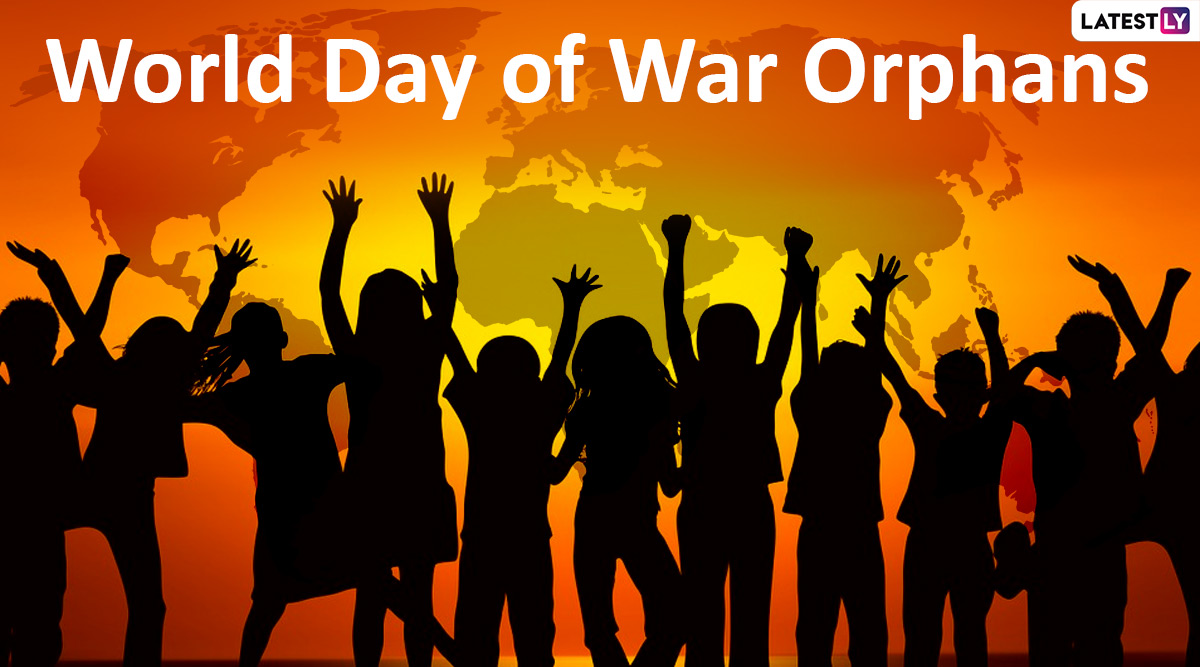World Day of War Orphans
Last week Thursday, January 6 was celebrated globally as World Day of War Orphans, a day set aside to raise awareness about children who have been orphaned due to wars. It was meant to draw attention to the condition of children who are orphaned as a result of a war or any other conflict. This […]

Last week Thursday, January 6 was celebrated globally as World Day of War Orphans, a day set aside to raise awareness about children who have been orphaned due to wars. It was meant to draw attention to the condition of children who are orphaned as a result of a war or any other conflict.
This is important because youngsters, especially orphans, during any conflict, become one of the most susceptible populations, facing starvation, relocation, insufficient health care and poor education
The day was founded by the French organization, SOS Enfants en Detresses, and envisaged to give worldwide communities the opportunity to voice out the predicament of this vulnerable segment of the population and to highlight the emotional, social and physical challenges children face while growing up, and to address their plight.
Indeed, the plight of war orphans has evolved into a global humanitarian and social catastrophe that is not getting any better. The United Nations Children’s Fund (UNICEF) says there are over 140 million orphans globally as of 2015, with 52 million of them from Africa.
And even though Nigeria has not formally declared war against Boko Haram/Islamic State West Africa Province (ISWAP) terrorists, the country has not escaped the menace of orphans the terrorism violence has created. The over 12-year-old fight in the North East and its accompanying spread to other regions in Northern Nigeria has produced thousands of children who have become orphaned, with vast majority of them living with grandparents, other family members or in the various Internally Displaced Persons (IDPs) camps.
UNICEF estimates that there are nearly 900,000 children in Nigeria’s North East region who have been seriously affected by the counter-terrorism and counter-insurgency war, either through a lack of education, food, shelter or direct injury.
In August last year, Save the Children organization said an estimated 2.3 million children and youth, including some 700,000 children under five are going hungry in North East Nigeria.
Out of this number, the fund claims about 1.4 million are displaced. This means that these children left everything, including homes, possessions and family in search of refuge from hunger and disease. Their normal lives are cut short as they suddenly lack the parental care many take for granted.
Most of these orphans have gone through varying degrees of suffering and violence with their normal sense of survival, learning and protecting negatively impacted. Some had even watched their parents killed, abducted or just disappeared, or their houses damaged or burnt down and faced forced separation from family members.
They have lived through deprivations especially the overcrowding in IDPs, family separation and lack of basic social services. For the girl-child among them, they are prone to be married off or exposed to high-risk gender-based violence, physical and sexual abuse. These children are likely to drop out of school and have their childhood dreams fade away.
First, concerted efforts should be made to stop the insecurity that is breeding orphans just as local, state and federal governments, development partners and Civil Society Organisations (CSOs) should ensure that no orphan, along with all the other children affected by the nation’s security challenges, is left wanting for food, a safe place to live and availability of access to education.
They should also have access to safe water, counselling and psychosocial support, as well as vaccinations and treatment for severe acute malnutrition they are usually associated with. Any of them unaccompanied needs to have a child-friendly space where they can temporarily stay until they can be reconnected with their family or another solution is found.
This is a purely humanitarian challenge and these orphans must be made to enjoy care, love and dignity. After all, in the Convention on the Rights of the Child which Nigeria is a signatory to, it is the right of any child to receive all necessary protection and it should be respected even in conflict. Much more should be done to help these children live a ‘normal life,’ even amid a situation that is very far from normal.
